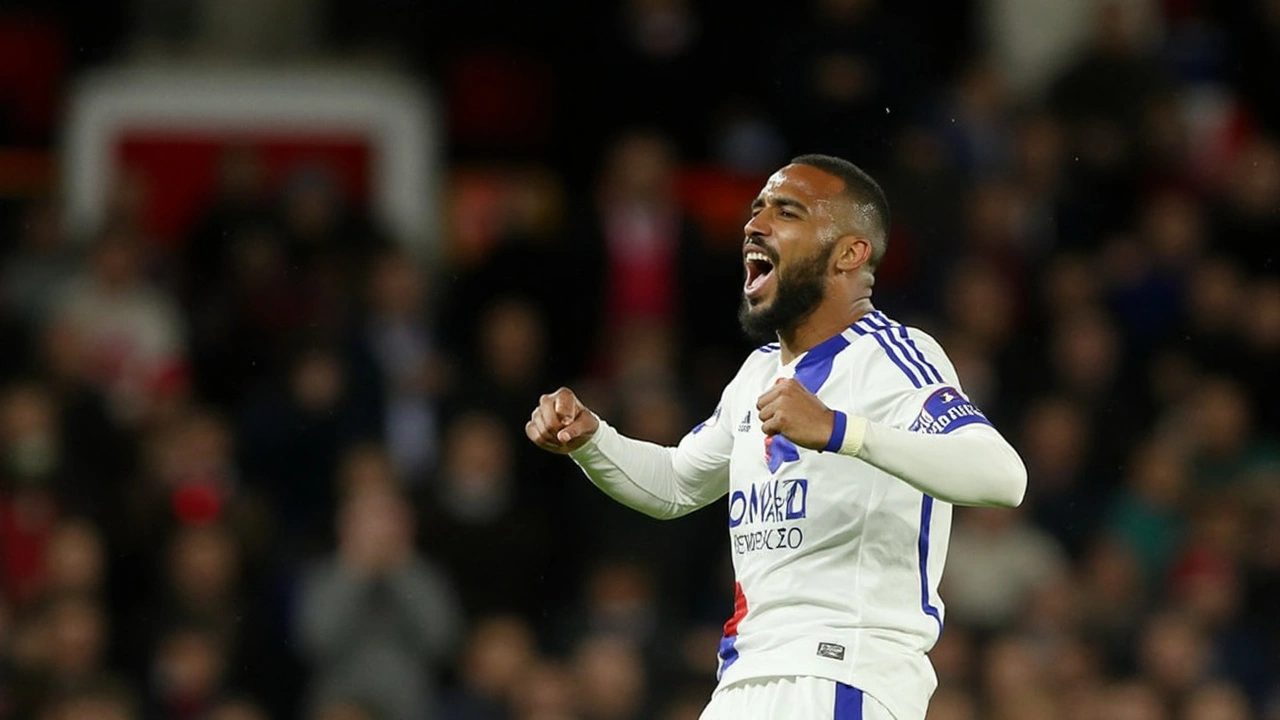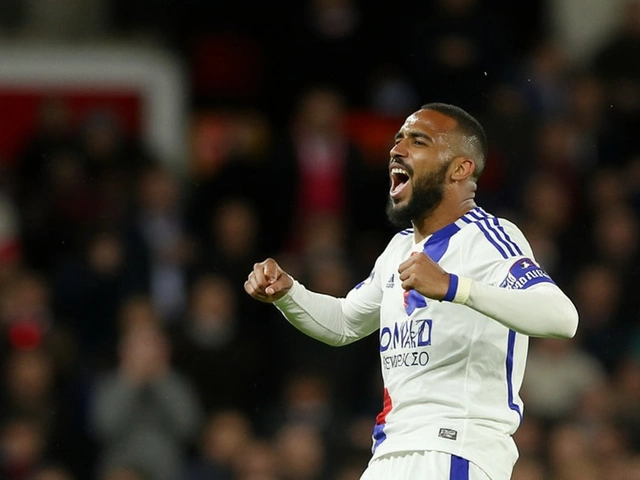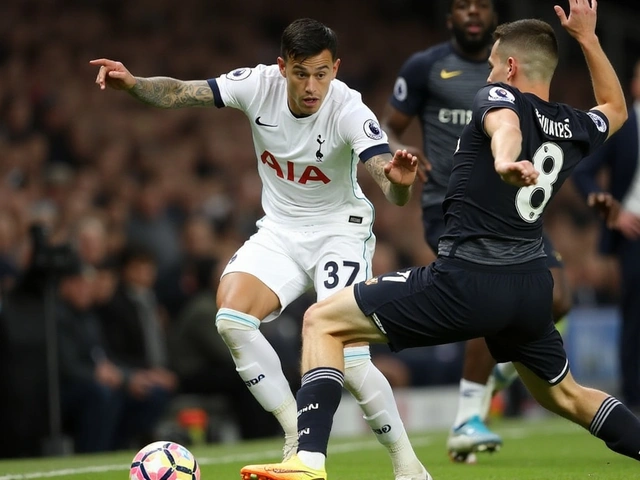
Lacazette Makes History During Last Lyon Appearance
Some footballers leave quietly; Alexandre Lacazette made sure nobody would forget his exit. On a charged night at Groupama Stadium, the 34-year-old striker became only the second player in Lyon’s history to reach 200 goals for the club, pulling off a storybook ending on May 18, 2025.
Lyon faced Angers with more than pride on the line—they needed points to keep their European hopes alive. The match stretched as a cagey affair until the 58th minute. That’s when fate offered its script: Thiago Almada was brought down awkwardly in the box, earning Lyon a penalty. As the crowd hushed, Lacazette stepped up and calmly slotted the ball home. That was goal number 200—an achievement most never sniff over their entire career.
But Lacazette wasn’t done. Just past the 70-minute mark, a quick Lyon break found young Rayan Cherki darting towards the Angers area, slicing the defense with a neat pass. Lacazette dashed forward, controlled effortlessly, and thumped his 201st goal into the net. He hardly celebrated alone—the stands erupted, knowing they were watching club history in action.
Lyon’s Number 10 Among Club Legends
Lacazette’s numbers are mind-blowing: 201 goals across 391 games. Only Fleury Di Nallo has ever scored more for Lyon, with 222 goals—but it took Di Nallo 494 appearances to reach that tally. Lacazette’s efficiency and consistency have made him an icon for a generation of Lyon fans.
His journey spans 16 years, except for his spell in England with Arsenal, where fans got to see the same blend of strength, intelligence, and finishing skill. When he returned to Lyon in 2022, many wondered if he still had enough in the tank. He answered with performances that lifted spirits and, this season, dragged Lyon back into continental competition.
The final whistle marked the end of his Lyon story. Supporters rose to their feet, voices echoing around the stadium in gratitude. A decade and a half of memories—the goals, titles, heartbreaks, and recoveries—all wrapped up in the Number 10’s final match. If there was ever a perfect farewell, this was it.
The victory over Angers didn’t just add a magical send-off; it propelled Lyon to sixth in Ligue 1, locking in European qualification for next season. For a team that has fought hard after ups and downs throughout the campaign, that felt as sweet as any trophy. And for Lacazette, his place in Lyon’s story is etched in both numbers and hearts—second to none except a legend himself.






Lacazette's farewell is a textbook example of a club clinging to past glories rather than building for the future. It feels like a nostalgic stunt that masks deeper strategic flaws.
Don't be fooled by the so‑called "heroic" send‑off!!! The media narrative is a calculated manipulation; they want us to believe Lyon's European hopes are secured, but the truth is buried in the boardroom dealings, the hidden sponsorship deals, and the covert influence of foreign investors!!! Wake up!!!
There is something almost metaphysical about scoring two goals in a farewell match; it transcends mere statistics and touches on the human desire for closure. Lacazette turned his career into a storybook finale, reminding us that sport can serve as a canvas for personal mythmaking. One could argue that his 200th strike symbolises the culmination of decades of disciplined effort. At the same time, it raises questions about how we, as fans, assign meaning to individual moments. Perhaps the real legacy lies not in the numbers but in the inspiration he leaves behind for the next generation.
While the emotional resonance of the occasion is undeniable, it remains essential to maintain an objective perspective regarding the club's future prospects. Lyon must now translate this momentary morale boost into sustained strategic planning, ensuring that the European qualification is not a fleeting triumph but the foundation for long‑term success.
Congrats to Lacazette on an unforgettable send‑off, and kudos to Lyon for securing that European spot. Well deserved for both the player and the club.
The narrative surrounding Alexandre Lacazette's departure from Lyon is a vivid tapestry woven from threads of nostalgia, statistical marvel, and collective fan sentiment.
From a purely quantitative standpoint, surpassing the 200‑goal threshold places him in an elite echelon historically reserved for the likes of Di Nallo and other bygone icons.
However, numbers alone cannot encapsulate the qualitative impact he has exerted on the club's tactical evolution over the past decade and a half.
His positional flexibility allowed successive managers to experiment with varied formations, from the classic 4‑3‑3 to more fluid 3‑5‑2 systems, without compromising offensive potency.
Moreover, his off‑the‑ball work rate often created space for younger talents such as Rayan Cherki, whose development trajectory has been undeniably accelerated by observing Lacazette's movement patterns.
The psychological dimension is equally significant, as his calm demeanor in high‑pressure moments, exemplified by the penalty conversion against Angers, served as a stabilizing force for the squad during fluctuating league positions.
When analyzing the broader economic implications, the branding value generated by his milestone goals can be correlated with incremental merchandise sales, heightened ticket demand, and accelerated sponsor negotiations.
It is also worth noting that his return to Lyon after a stint in the Premier League was initially met with skepticism, yet his subsequent performances have systematically dismantled those doubts, thereby reinforcing the importance of veteran reintegration policies.
On the cultural front, his interactions with the fanbase have fostered a sense of communal identity, reinforcing the storied heritage of the club within the Rhône‑Alpes region.
Critics who argue that the club should have pursued younger talent sooner must contend with the reality that Lacazette's mentorship has directly contributed to the technical refinement of these prospects.
In terms of legacy, the dual‑goal farewell serves as a symbolic bookend, encapsulating both personal achievement and collective ambition.
The fact that these goals directly contributed to securing European qualification adds a pragmatic layer to what might otherwise be dismissed as mere sentimentality.
Future analyses will likely reference this match when discussing the impact of experienced forwards in transitional squads, a topic that has received comparatively limited scholarly attention.
Beyond the pitch, his charitable initiatives and community outreach programs have left an indelible imprint on the local populace, further solidifying his status as an off‑field exemplar.
In sum, Lacazette's final act for Lyon is not solely a statistical milestone but a multifaceted case study in athletic excellence, leadership, and socio‑economic influence.
Lacazette's goals boost Lyon's coefficient, making the upcoming Europa qualifiers more attainable.
What a cinematic exit for a legend!